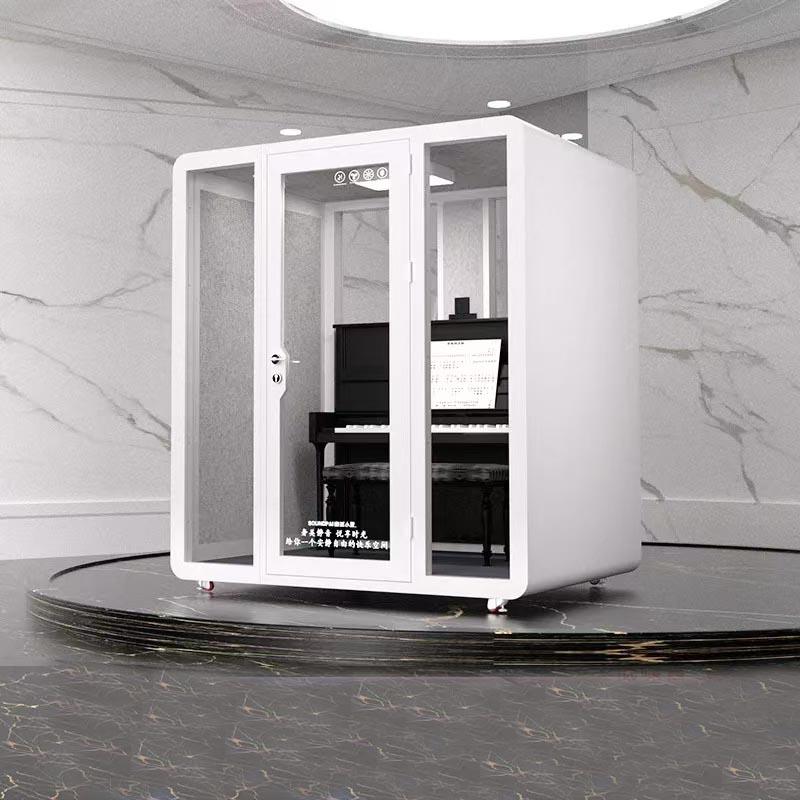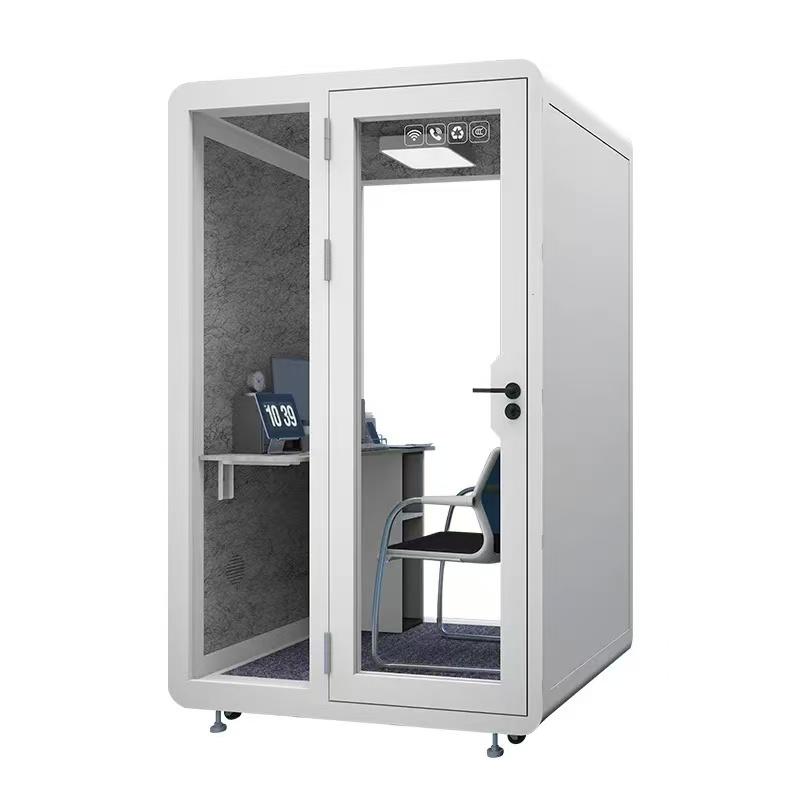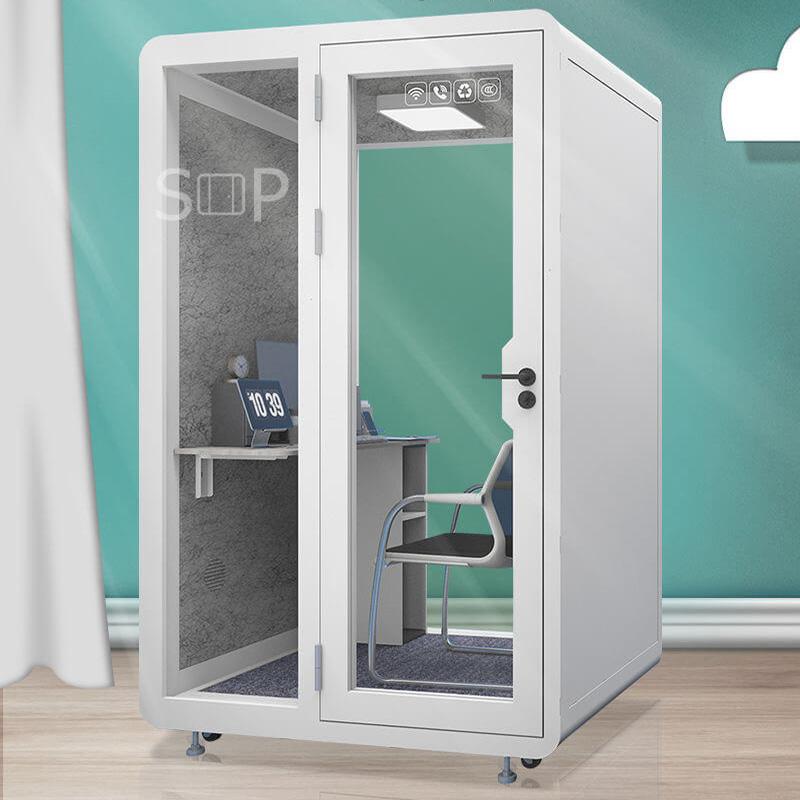Author:SOP Work Pods Manufacturer TIME:2024-12-05
In today’s office environments, sustainability is becoming a major concern. Businesses and organizations are increasingly looking for ways to reduce their environmental footprint and adopt eco-friendly practices. One such innovation that has gained popularity in many offices is the use of pods – small, self-contained spaces designed to provide privacy or quiet areas within open-plan office settings. However, with the growing focus on sustainability, it’s important to question: are these pods in office truly eco-friendly? In this article, we will explore the factors that determine whether your office pods are eco-friendly, from the materials used in their construction to their overall environmental impact.
Before diving into specific features of pods in office, it's essential to understand what makes a product eco-friendly. Generally, an eco-friendly product is one that has minimal negative impact on the environment throughout its lifecycle—from the raw materials used, through production, use, and eventual disposal. For pods in office, several factors contribute to their sustainability:
To assess whether your pods in office are truly eco-friendly, it's crucial to evaluate these factors and understand how they align with your company’s sustainability goals.

One of the most significant aspects of an eco-friendly pods in office is the materials used in its construction. Traditional office furniture and structures are often made with materials that are not sustainable or that can have a long-lasting negative impact on the environment. However, some office pod manufacturers are now focusing on using eco-friendly materials such as recycled plastics, sustainable woods, and non-toxic finishes.
Recycled materials, for instance, reduce the need for virgin resources, thereby conserving natural habitats and lowering carbon emissions. Sustainable woods, such as bamboo or FSC-certified timber, are not only renewable but also ensure that forests are managed responsibly. Additionally, non-toxic paints and finishes ensure that the pod is free from harmful chemicals, improving indoor air quality and reducing the risk of exposure to volatile organic compounds (VOCs).

Energy efficiency is another important factor to consider when assessing the eco-friendliness of pods in office. While these pods are designed to offer a quiet, private space, they should also be designed in a way that minimizes energy use. Many modern office pods are equipped with high-quality insulation materials, which help regulate temperature and reduce the need for heating and cooling. This leads to a reduction in energy consumption, which directly impacts a company’s carbon footprint.
Moreover, some pods are designed with built-in LED lighting and energy-efficient electrical systems, reducing electricity usage while still providing a well-lit, functional workspace. If the pods incorporate natural light through windows or skylights, this can further reduce the need for artificial lighting during daylight hours, contributing to additional energy savings.
The longer an pods in office lasts, the less often it needs to be replaced, which directly impacts the overall environmental footprint. Eco-friendly office pods are often built with durable materials that are designed to stand the test of time. This means fewer resources are needed for replacements, and less waste ends up in landfills.
Durable office pods can also be easily maintained, which contributes to their longevity. For example, pods with modular designs allow components to be repaired or replaced individually, which can extend the lifespan of the pod. By investing in high-quality, long-lasting pods, companies can reduce the frequency of production and disposal, promoting sustainability over time.
When assessing the eco-friendliness of pods in office, it’s important to consider their end-of-life impact. At the end of their service life, office pods should be able to be disassembled and recycled, rather than being sent to a landfill. Some eco-conscious manufacturers design their pods with materials that can be easily recycled, such as aluminum frames, recyclable plastics, and wood that can be repurposed or composted.
Additionally, some companies are now adopting circular economy principles, meaning that they not only focus on the recyclability of materials but also take back used pods to refurbish and resell them. This can greatly reduce waste and promote the reusability of materials. By choosing office pods that are designed with end-of-life considerations in mind, businesses can ensure that their sustainability efforts continue even when the pods are no longer in use.
While it’s essential for businesses to make informed decisions when selecting office pods, manufacturers also play a crucial role in promoting eco-friendly practices. Many companies now recognize the growing demand for sustainable products and have taken steps to improve the environmental performance of their pods. This includes using responsibly sourced materials, minimizing waste during manufacturing, and adopting green production processes that reduce energy consumption and pollution.
Some manufacturers go even further by obtaining certifications such as ISO 14001, which demonstrates a commitment to environmental management and sustainability. These certifications ensure that the manufacturer adheres to stringent environmental standards, further assuring customers that the products they purchase are truly eco-friendly.
Choosing eco-friendly pods in office is just one piece of the puzzle when it comes to creating a sustainable workplace. However, it’s an important one. By opting for pods that are built with sustainable materials, energy-efficient features, and a focus on recyclability, businesses are making a positive contribution to the environment. Furthermore, when office pods are used strategically, they can reduce the need for larger office spaces, thus lowering the overall carbon footprint of a company’s real estate footprint.
Moreover, providing employees with quiet, private spaces can contribute to a more productive and healthier work environment. A sustainable office pod is not just about being environmentally friendly; it’s about creating a better workplace for employees and contributing to the broader goals of corporate social responsibility (CSR).

In conclusion, whether or not your pods in office are eco-friendly depends on several factors, including the materials used, energy efficiency, durability, and end-of-life considerations. By focusing on these key aspects, businesses can ensure they are making sustainable choices when selecting office pods. Moreover, the role of manufacturers in promoting sustainability is crucial, and companies should look for pods that are designed with eco-consciousness in mind.
Ultimately, an eco-friendly pods in office not only helps reduce environmental impact but can also enhance employee well-being and contribute to a company’s overall sustainability efforts. By making informed decisions, businesses can play an active role in promoting a greener future while providing a functional, comfortable space for their employees.